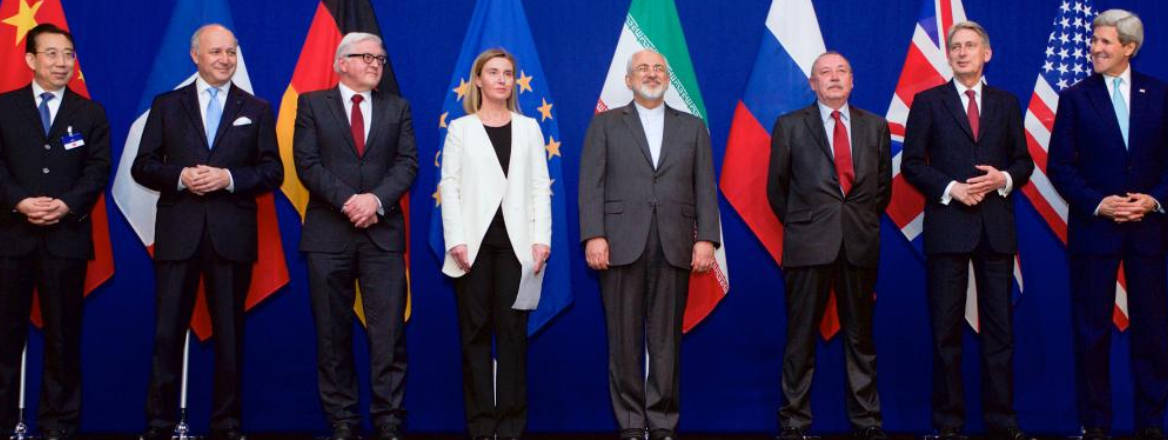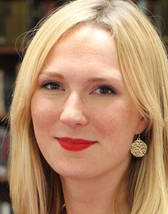The Iran Deal One Year On: A Snapshot
A year has passed since the permanent five members of the UN Security Council plus Germany (the P5+1) reached agreement with Iran on the Joint Comprehensive Plan of Action (JCPOA), the deal under which Iran would limit its nuclear ambitions in return for the relief of economic sanctions. Implementation, while broadly positive, has already encountered technical, procedural and political challenges.
Nuclear Commitments
The record of Iran’s implementation of nuclear commitments has been broadly positive. In the coming weeks, the UN Secretary-General Ban Ki-moon is likely to report on the state of the JCPOA, as mandated in UN Security Council Resolution 2231. In his report, he is expected to echo this favourable assessment of the progress that Iran has made towards meeting nuclear commitments.
By early 2016, Iran had reduced its stockpiles of enriched uranium to below agreed levels, capped its level of enrichment, cut its operational centrifuges at the Natanz and Fordow facilities by two thirds, and removed the core of the Arak heavy water reactor, thereby reducing its ability to produce weapons-usable plutonium. Since that time, Iran has adhered to the ‘Additional Protocol’, which facilitates stringent international access and monitoring of its nuclear programme, although it has yet to introduce the Protocol into national law.
These steps, although crucial to the deal’s success, were in a sense a box-ticking exercise, and one Iran wanted to complete as quickly as possible, as the deal could not progress to Implementation Day, when sanctions would be lifted, until Iran demonstrated they were complete.
By contrast, other procedures required to support the longer-term compliance of the nuclear part of the JCPOA have moved more slowly. The deal mandated the establishment of a procurement channel and a corresponding working group which would approve all Iranian procurement of specified, sensitive nuclear-related goods and technology. It is believed that, notwithstanding the fact that six months have elapsed since Implementation Day, no formal procurement requests have been submitted. This is largely because the processes took a substantial lead-time to put in place. After some discussion, the EU agreed to lead procurement-related activities, but the effort remains under-resourced since the EU did not initially plan to take on this role.
Similarly, it was only very recently that Iran identified that the Ministry of Industry and Mines will be responsible for authenticating end-user declarations for nuclear-related procurement requests. Delays in clarifying and securing these key details have stalled the operation of one of the JCPOA’s most important mechanisms, although the building blocks of the structure now largely appear to be in place.
There appears to be similar progress in other forms of nuclear commitments mandated by the JCPOA. China reportedly signed an agreement with Iran in January to help with the redesign of the Arak reactor to reduce its proliferation potential. In May, Russia’s Rosatom state nuclear energy corporation announced that it was finalising an agreement with Iran to convert another facility – the underground Fordow site, which had previously enriched uranium — to a scientific centre producing isotopes. These discussions will require further time to bear fruit, but will eventually ensure greater international collaboration and insight into the Iranian nuclear programme.
An Economic Comeback?
Iran’s nuclear commitments only represent one side of the deal. In return for limiting its nuclear ambitions, Iran expected a return to the world economic stage. A large number of international trade delegations have travelled to Tehran and expressed interest in pursuing commercial deals. Iran’s oil production has bounced back to levels last encountered in 2011, when sanctions were tightened. And the IMF has estimated that the Iranian economy will grow by 4% this year, after years of economic decline.
However, there are tensions between what appears on paper in the JCPOA, and Iran’s expectations in practice. Iranian officials consistently argue that the US (and to a lesser extent the EU) is betraying its pledge to ‘refrain from any policy specifically intended to ... affect the normalisation of trade and economic relations with Iran’ and implementing the JCPOA ‘in good faith and in a constructive atmosphere’.
Many companies remain wary of re-entering the Iranian market, citing other enduring sanctions on Iran, continuing prohibitions on transacting in US dollars, and Iran’s poor corporate transparency and dismal financial crime record. European financial institutions are also mindful of the enormous consequences of inadvertently breaching US regulations. Conversations with banks in Europe highlight the fact that their reluctance to do any Iranian business is deep, and will likely persist for some time to come, a view that Tehran is both aware of and intensely dissatisfied with.
In an attempt to undermine criticism that US policies are obstructing prospects for Iranian trade, senior US officials, including the Secretary of State and the head of the Office on Foreign Assets Control, have engaged in direct outreach and reassurance campaigns. However, their assertions that ‘Iran is open for business’ have been plainly rebuffed by banking executives.
In parallel with US assurances, the Financial Action Task Force (FATF), the global standard-setter for anti-money laundering and countering terrorism finance, has attempted to demonstrate that Iran is making progress in addressing foreign concerns about its status on the FATF list of high-risk jurisdictions. In mid-June, the FATF chose to temporarily remove certain restrictions, giving Tehran one year to demonstrate further progress. The prospect that Iran will again be subject to restrictive measures, however, means European banks are unlikely to think any differently about the longer-term risks of engaging with Iran.
One year into the Iran deal, the reality is therefore that any European companies interested in doing business with Iran will have to go far out of their way to finance it. Such hurdles will continue to deter most of those companies, leaving Iran’s expectations of returning to pre-2011 European trade levels unfulfilled. How this may destabilise the JCPOA as a whole remains to be seen.
Sunset on the Obama Administration
For Tehran, the success of the agreement rests on experiencing tangible economic benefits. It has consistently accused Washington of failing to act in the spirit of the agreement, with Supreme Leader Ayatollah Khamenei recently vowing on Twitter to ‘set fire’ to the nuclear deal should the US ignore its commitments. Such statements show the fragility which still plagues the JCPOA – something that has unsettled President Obama’s administration in its last months in office. This administration has taken numerous steps to dispel accusations that it is undermining the deal, and is eager to leave it in good shape when a new president enters the White House. It has gone beyond what was agreed on paper to encourage economic re-engagement with Iran, despite the persistent business risks associated with such a move. In addition, the administration stunned many by announcing that it would buy large volumes of Iranian nuclear material, which some believe pre-emptively validated the Iranian nuclear programme.
For now, the quarrel over sanctions relief will inhibit any wider warming of relations between Iran and the US, which will stand in contrast to efforts in Brussels, where an Iran Task Force has been created to promote conversation about a co-operative regional framework with Iran.
Still, the task for the coming year will be to build on some of the technical and procedural frameworks that are currently being put in place, and balance the discussion over sanctions relief. The US and the EU must continue to demonstrate their intention to fulfil their obligations and act in the spirit of the deal, without artificially inflating Iran’s already unrealistic expectations of a return to the status quo ante, something which remains a far more difficult proposition.
WRITTEN BY
Dr Aniseh Bassiri Tabrizi
External Author
Andrea Berger
Guest Contributor
Emil Dall
RUSI Associate Fellow, CFS




